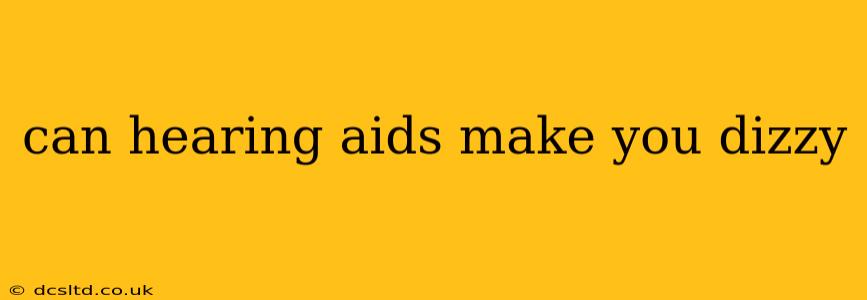Hearing aids are designed to improve hearing, but some users report experiencing dizziness or vertigo after starting to use them. This isn't necessarily a side effect of the hearing aid itself, but rather a consequence of the changes the device introduces to how the brain processes sound. Let's explore the relationship between hearing aids and dizziness, addressing common concerns and clarifying potential causes.
Why Might Hearing Aids Cause Dizziness?
The sensation of dizziness with hearing aids isn't as straightforward as a direct cause-and-effect relationship. It's often linked to several contributing factors:
-
Sudden Auditory Input: For individuals with significant hearing loss, the brain may not be accustomed to processing a full range of sounds. Suddenly introducing amplified sounds can overwhelm the brain, leading to feelings of dizziness, disorientation, or even nausea. This is particularly true in the initial days or weeks of using a hearing aid.
-
Improper Fitting or Adjustment: Incorrectly fitted hearing aids can create an imbalance in sound perception between the ears. This discrepancy can confuse the brain's spatial orientation system, triggering dizziness. Similarly, if the hearing aid is amplifying sounds too much or in an unbalanced way, it can contribute to the problem.
-
Underlying Medical Conditions: Dizziness can be a symptom of various underlying medical conditions, including inner ear problems (like Meniere's disease or vestibular neuritis), cardiovascular issues, or neurological disorders. In such cases, the onset of dizziness might coincide with the use of hearing aids, but the hearing aid isn't the root cause.
-
Changes in Sound Processing: The brain relies on subtle cues from sound to maintain balance. Hearing aids, while helpful, can sometimes distort or alter these cues, causing the brain to misinterpret spatial information and leading to dizziness.
How to Minimize Dizziness with Hearing Aids
If you experience dizziness with your hearing aids, here are some steps you can take:
-
Gradual Adjustment: Your audiologist will likely recommend a gradual introduction to hearing aid use. Start by wearing them for short periods and gradually increase the wearing time as you become more accustomed to the amplified sounds.
-
Proper Fitting: Ensure your hearing aids are fitted properly by a qualified audiologist. A well-fitted hearing aid minimizes the potential for sound imbalances and discomfort.
-
Regular Check-ups: Schedule regular check-ups with your audiologist to monitor the fit, adjust settings as needed, and address any concerns about dizziness.
-
Inform Your Audiologist: Openly discuss any dizziness or discomfort you experience with your audiologist. They can adjust the settings, suggest alternative hearing aids, or refer you to other specialists if necessary.
-
Consult Your Doctor: If the dizziness is severe, persistent, or accompanied by other symptoms (like vomiting or severe headaches), consult your doctor or a specialist to rule out any underlying medical conditions.
What if I still feel dizzy after making adjustments?
Persistent dizziness despite adjustments warrants a thorough investigation. Your audiologist might recommend different settings, a different type of hearing aid, or refer you to a specialist such as an ENT (Ear, Nose, and Throat) doctor or a vestibular specialist to address potential balance disorders.
Is it normal to feel dizzy when first using hearing aids?
Some mild dizziness or disorientation is possible, especially in the initial stages of hearing aid use, due to the brain adapting to the new auditory input. However, severe or persistent dizziness is not considered normal and requires professional assessment.
Can different types of hearing aids cause varying levels of dizziness?
While not inherently linked to specific types, how a hearing aid processes and amplifies sound can influence the likelihood of dizziness. A discussion with your audiologist about your specific needs and any pre-existing balance issues is crucial for choosing the most suitable hearing aid.
In summary, while hearing aids can sometimes contribute to dizziness, it's rarely a direct cause. Careful fitting, gradual adjustment, and open communication with your audiologist are key to minimizing this potential side effect and ensuring a positive experience with hearing amplification. Always prioritize a thorough assessment to rule out any underlying medical concerns contributing to dizziness.
